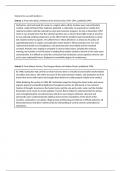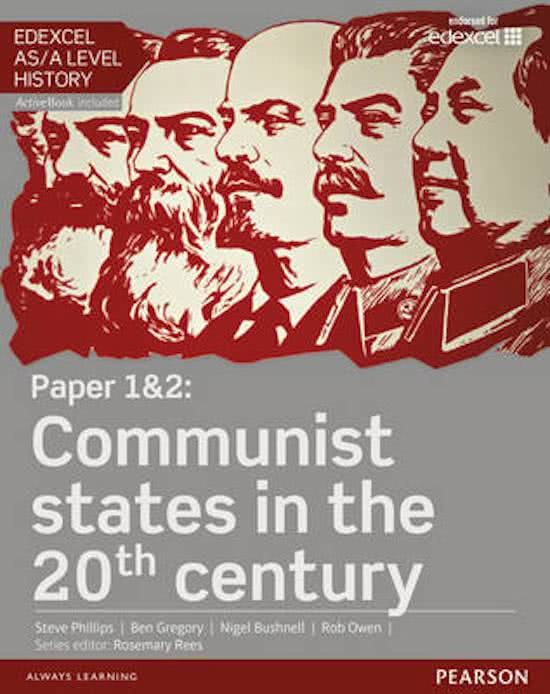Extracts for use with Section C.
Extract 1: From John Keep, A History of the Soviet Union 1945–1991, published 1995.
Gorbachev, who had made his career in a region where ethnic tensions were not particularly
marked, underestimated their explosive potential. A rationalist, he assumed too readily that
national enmities could be reduced by social and economic progress. As late as November 1987,
when it was already clear that the national question was a volcano that might erupt at any time,
he was uttering soothing statements to the effect that the problem had essentially been solved
but needed review by experts. He suffered from ‘ethnic blindness’ as shown by his policy of
appointing Russians to replace uncooperative native leaders. When protests [over one such
replacement] broke out in Kazakhstan, nine demonstrators were killed and five hundred
arrested. Protests were staged in sympathy in several other places. Despite this ominous
warning, the number of non-Russians in leading Party bodies tended to decline in the early years
of perestroika. It is difficult to avoid the conclusion that Gorbachev, preoccupied by what he saw
Extract
as far 2: From
more Robert Service,
substantial issues,The Penguin
displayed History of Modern
a remarkable degree Russia, published 1998. By 1988
of complacency.
Extract 2: From Robert Service, The Penguin History of Modern Russia, published 1998.
By 1988, Gorbachev had carried out what had once been a virtually inconceivable transformation
of politics and culture. The entire structure of the state had been shaken, and Gorbachev let it be
known that more walls had to be brought down before he could properly rebuild as he wished.
While battering the system in 1986–88, Gorbachev hoped to change the Soviet order and secure
popular approval and political legitimacy throughout society. He still aimed, in his confused
fashion of thought, to preserve the Soviet Union and the one-party state. Lenin and the October
Revolution were meant to remain publicly revered. But he failed to understand that his actions
were strengthening the very phenomena which he was trying to eliminate. Glasnost and
perestroika were undermining the political and economic foundations of the Soviet order.
Localism, nationalism, corruption, illegal private profiteering and distrust of official authority: all
these phenomena had been reinforced by the dismantling of central controls undertaken by
Gorbachev.





